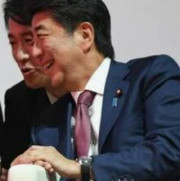1998: a peacekeeper force HQ in Bosnia. A field order is read to a regular patrol team. A standard quarter-page preamble refers to Serbs in the context of “restraint of provocations”, “search for war criminals” and other “acts of genocide”. During the detailed oral briefing a US officer of a Serbian origin proposes sarcastically to replace “Serbs” with “enemy” as it is required in the field manual. This proposal is followed after a pause by a conclusion of the American division commander that the order to peacekeepers may be not absolutely politically correct but in substance…
2003: a press-service officer of the Monte Negro Government already separating from Serbia excusably explains: “If Serbs were in position to rename themselves as, say, “Euro-Slavs”, there would be no obstacle to the union with Belgrade”, and adds in warm blood: “It’s just a bad luck but to be close to Europe we have to call ourselves “Montenegros” instead of Yugoslavians!” and already at parting either asks or states: “Russia in any case will defend Orthodox Christians…” About five years passed. And already the assistant of Serbian Premier Koshtunitsa confesses that regardless of the “feeding” party membership he votes for the radical-nationalists because “it is the only party that defends Serbs but not programs.” The circle closed. The second round of the presidential election will be held on February 3.
At the first round held 10 days ago radical Tomislav Nickolich received 39 per cent and liberal Boris Tadich – 35 per cent. The former being a tycoon of a continental scale does not discover his “Eurointerests” but chants with Serbian persistence: “Serbian Kosovo! Slavs! Russia!” Todays President Tadich focuses also on the national integrity but in all other aspects advocates equidistance both from the West and from Moscow. Premier Voislav Koshtunitsa residing between them is a local “Apple supporter” with a patriotic “blush”. He supports pragmatist Tadich but reasonably assumes: “ Serbs will vote for a person who as they believe, will not give up Kosovo.” Nickolich in support of his views is ready to break off relations with all countries that will recognize independence of Kosovars, and even ready to render military assistance to the compatriots in Kosovo. Besides, he proposes to us to establish a military base in Serbia, refers to Yugoslavia in the future time, implies a sort of confederative relations with Moscow, and almost as Hugo Chaves appeals for anti-West unity “as the conditions get mature for it”.
But the Russian President as soon as he returned from Sofia preferred to receive Tadich and Koshtunitsa, that is, to support the pragmatists. On January 25, Russia represented by Gazprom acquired a control stake in Serbian energy holding company NIS, and intends to procure national air lines JAT. The documentary “extension” of the South Stream from Bulgaria via Serbia becomes the most important argument in favor of the Russian massive gas supplies to Southern Europe, and first of all to Italy. Taking into account the talks about “defense of Orthodox Christians in Monte Negro”, and the nonpolitical interests of Italian consumers this pipeline seems to become a key recent political and energy-business achievement of Russia. Because, ground gas pipeline Nabucco (Caspian Sea – Turkey) bypassing Russia and also running to Bulgaria will not have a straight way to Italy due to primary Serbian and (God bless) Montenegrin belonging of the pipes.
The equidistance story is more complicated. On the one hand, the European Union that is attractive not only to the Tadich party-mates, is evidently interested in parallel merger of Serbia by NATO. On the other hand, NATO today hardly expects to enjoy Serbian hospitality. Therefore Tadich in general accepted the conditions of his support by Moscow: favor to energy-business and non-NATO status. In return we promise solidarity in extension of the UN but not EU mandate (that would disable us to have any influence) for Kosovo. It is difficult to say what proposals will be brought to Moscow by Nickolich who objectively has not less all-Serbian support. But it is (choose my words carefully) senseless to build a military base in the center of the Balkans surrounded by the NATO forces, and the reasoning about the Slav unity more looks like platonism. Besides, Serbia is far from joining “the anti-West” axis represented by Russia and China not to say that neither we nor China needs it.
It is obvious that the West possesses a regulator (represented by Kosovo) of all relations between all three concerned parties, bearing in mind Belgrade and Moscow. Meanwhile, the prospects of this regulation do not look very much clear. Provision of independence to Kosovo will provoke not only escalation of nationalistic sentiments in Serbia , but also rather predictable isolation of Belgrade. Moreover, even Nickolich will hardly resort to reunification by force. A delay in decision on the Kosovo status not less dependant on the West will demonstrate to any Belgrade rulers who determines the future of the federalism there. In these conditions it is very difficult to speak about reinforcement of “the Slav unity” (read: energy integration with Russia). Serbs themselves always want to be strong and independent. But in such way that the value of their pride would always have an explicit material equivalent. However, when we speak about Serbia, it is traditionally difficult to speak about anything explicit.








